Twenty Three Things That Will Shock First-Time Visitors To Spain

Experiencing Spain for the first time is like diving headfirst into a whirlwind of late-night dinners, passionate conversations, and a cultural rhythm that defies logic!
But, it all kind of makes perfect sense!
One thing is for sure: Spain has a way of delighting, confusing, and completely captivating first-time visitors. I bet that these will convince you to embrace life a la española.
1. The Late-Night Lifestyle

Forget early nights! Spain is just getting started when other countries are winding down. The idea of a “reasonable bedtime” is almost non-existent, and even weeknights feel like a celebration.
But why is everything so delayed? Blame it on Spain’s time zone quirk. Despite being geographically aligned with the UK, Spain operates on Central European Time, meaning daylight lingers and nights stretch on endlessly.
For first-timers, this shift can be jarring. You might show up at a bar at 8 p.m. and wonder why it’s empty. The real action doesn’t start until after midnight, so pace yourself! So, nap in the afternoon, sip vermouth at sunset, and dance until dawn.
2. Free Tapas Culture
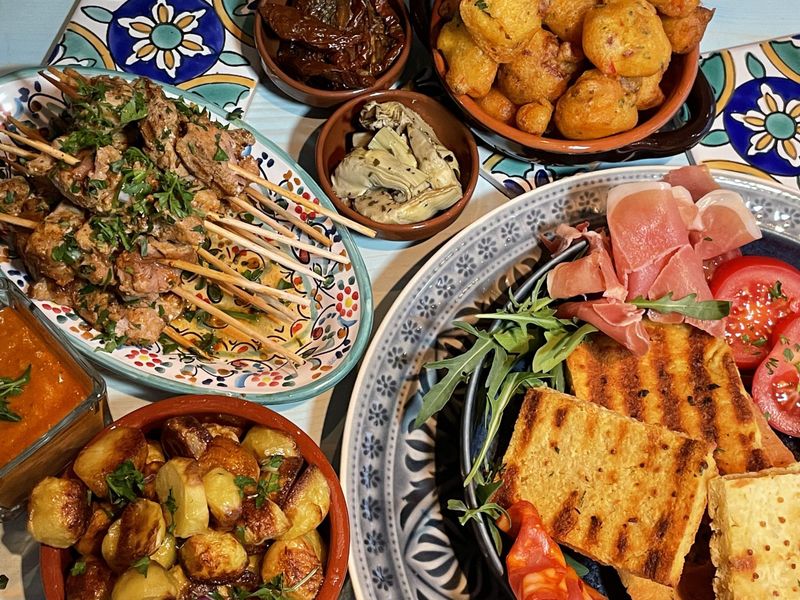
Imagine ordering a drink and, surprise! There’s a plate of food that magically appears. That’s the beauty of Spain’s legendary tapas culture. The more drinks you order, the better the snacks get. I think this will not be a problem!
You might start with a bowl of olives, then move on to crispy patatas bravas, and by your third round, a sizzling plate of chorizo could land on your table.
Newcomers often find it bewildering! Should you tip? Is there a catch? Nope, just enjoy.
3. Siesta Is Not What You Think
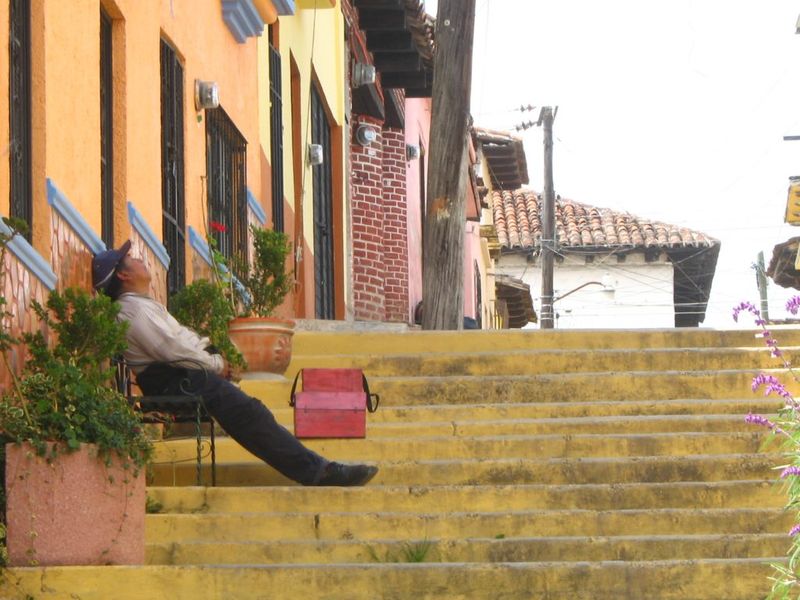
It’s time for the famous Spanish siesta! You think it’s a glorious midday nap? Well, not exactly!
While the idea of an entire country snoozing in the afternoon is a romanticized stereotype, the reality is more practical. The siesta tradition arose in the days of scorching midday heat, when farmers took a break from the sun.
Today, it’s more about businesses shutting down for a few hours than people actually sleeping.
And honestly, it makes sense. Why work when you could be enjoying a nice meal or an espresso in the shade?
4. The Passion For Jamón
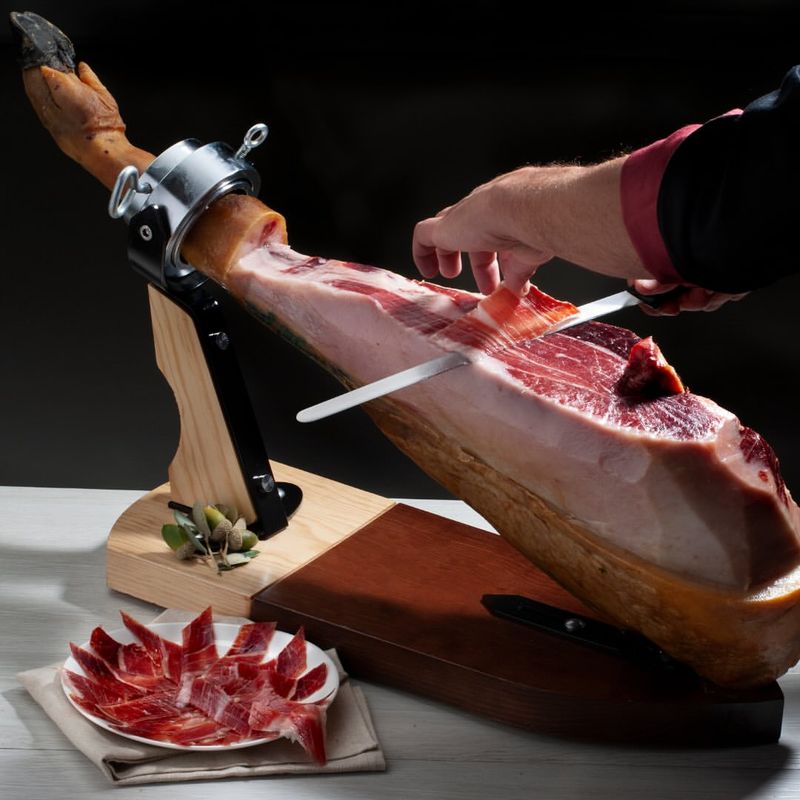
You like ham? Well, Spaniards revere it! Walk into any market, and you’ll be greeted by an army of hanging jamón legs, some aged for years like fine wine.
It’s practically everywhere. It’s layered on toast for breakfast, paired with Manchego cheese as a snack, or thinly sliced at tapas bars. You might even spot an entire leg proudly displayed in people’s kitchens, ready for slicing at a moment’s notice.
Whatever you do, just don’t compare it to prosciutto! They take their jamón very, very seriously!
5. Spaniards Talk Loudly—And Love It
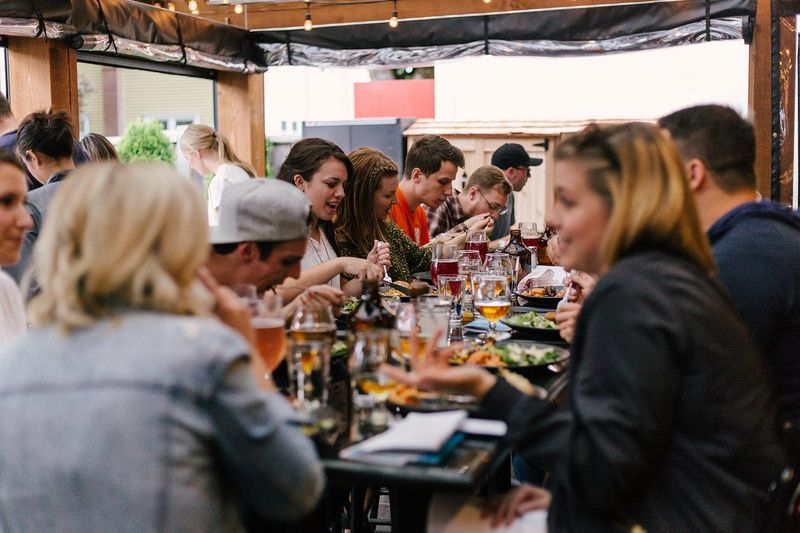
If your first thought upon stepping into a Spanish café is, “Wow, it’s loud in here,” congratulations! You’ve just experienced Spanish conversation at full volume.
Spaniards are passionate speakers, and even a casual chat can sound like a heated debate to outsiders.
At first, you might feel like you’re constantly shouting just to be heard. But soon, you’ll find yourself leaning in, gesturing wildly, and embracing the wonderful, boisterous rhythm of Spanish life. Bonus: if you pick up even a little Spanish, you’ll never need a microphone in your life again.
6. Festivals Can Get Wild

It’s time for Spain to unleash its festivals! Running with the bulls or La Tomatina festival; they are all thrilling as they are bizarre!
Each region has its own unique madness. Valencia sets giant paper-mâché figures on fire during Las Fallas, while in Haro, locals douse each other in red wine for the Batalla del Vino.
If you’re visiting for the first time, don’t worry! You’re not the first one that felt a little bit overwhelmed. One minute you’re watching in awe, the next you’re covered in tomatoes or running for your life. It’s all part of the magic, believe me.
7. Flamenco Is Not What You Expect
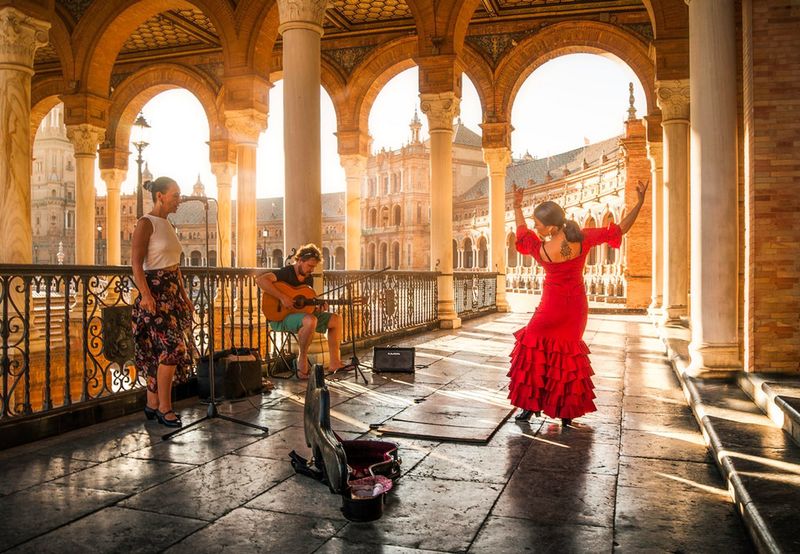
Ole! Flamenco is raw, intense, and packed with emotions! Saying that it’s just a dance would be the understatement of the year! It’s an explosion of passionate singing, intricate guitar work, and deep, soul-stirring rhythms.
In Andalucía, the birthplace of flamenco, you’ll find tiny, dimly lit tablaos where performers pour their hearts out, their faces etched with emotion.
Expect goosebumps, maybe even tears. And if you find yourself in a small bar in Seville, where an impromptu flamenco session starts at 2 a.m., consider yourself lucky! You’ve just stumbled upon the real deal.
8. Meal Times Are Seriously Late
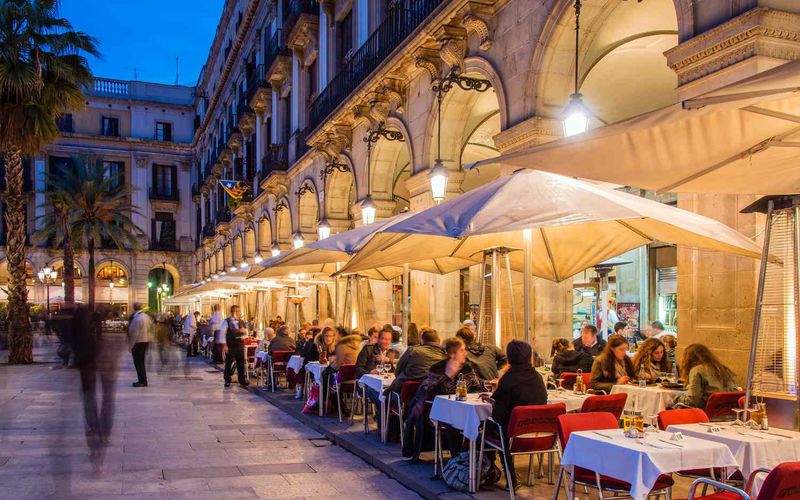
Think you’ll be sitting down for dinner at 6 p.m.? Think again. In Spain, lunch doesn’t happen before 2 p.m., and dinner? Not until 9 or 10 p.m.—and that’s on the early side.
Many restaurants won’t even open their doors until later, leaving hungry tourists bewildered and slightly desperate.
At first, adjusting to these mealtimes can be brutal. But give it time, and you’ll come to love the rhythm. Just remember: stock up on snacks, embrace the late-night tapas culture, and whatever you do, don’t ask for dinner at 5 p.m.! You’ll get some very confused looks.
9. The Concept Of Personal Space Is Different

Spaniards are a close-contact people. Conversations happen at a much shorter distance than in many other cultures, and casual touches—a pat on the shoulder, a friendly grab of the arm—are perfectly normal. See it more as warmth, instead of an invasion!
Public transport is another place where space is… flexible. A nearly empty metro car? Someone might still sit right next to you.
After a while, you might start enjoying the effortless intimacy of Spanish social life. After all, what’s a little lost personal space when it comes with such lively conversation and genuine connection?
10. Public Affection Is Everywhere

Forget the innocent holding hands you’re used to seeing in public! In Spain couples go all in.
I’m talking about full-on make-out sessions in the park, long embraces, and dreamy gazes exchanged at dinner tables.
And the best part? Nobody bats an eye.
Love in Spain isn’t hidden behind closed doors; it’s celebrated out in the open, without shame or restraint.
At first, it might feel like you’ve walked onto the set of a rom-com. But soon enough, you’ll stop noticing—or better yet, you’ll start appreciating how openly and unapologetically Spaniards express their affections.
11. Shops Close For Hours In The Afternoon
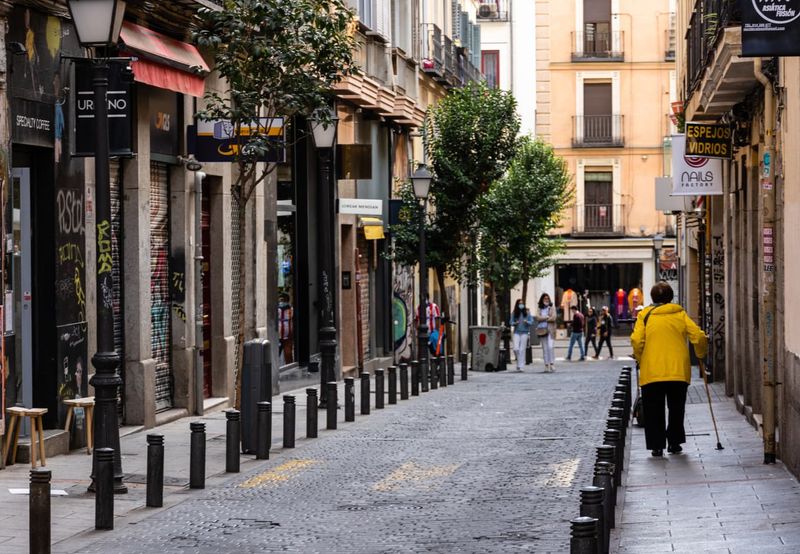
Another reminder for you that Spain takes its siesta seriously!
Spaniards believe work shouldn’t consume the day, and a proper lunch, often with family or friends, is worth pausing for. While major chains stay open, independent stores, bakeries, and boutiques stick to their own rhythm.
This can be maddening for visitors who expect round-the-clock retail. But once you embrace the slower pace, it starts to make sense.
12. Spain Has Many Regional Languages
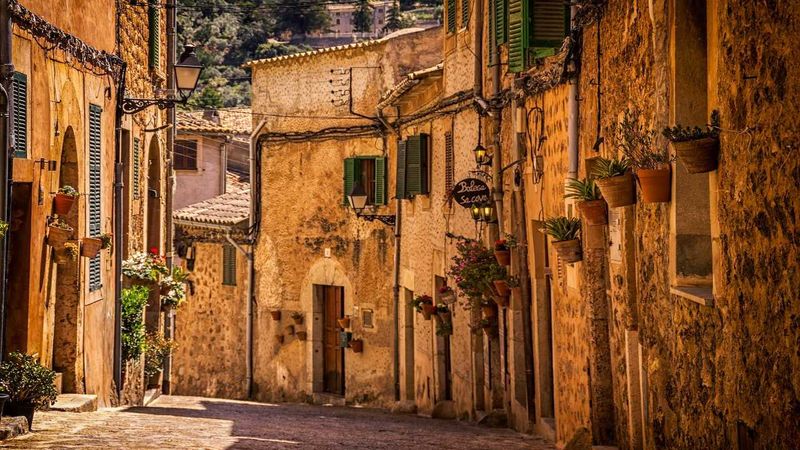
You might assume that Spanish is spoken everywhere, but Spain is a linguistic patchwork.
In Catalonia, you’ll hear Catalan; in the Basque Country, the ancient Euskara language holds strong; in Galicia, Galician dominates. These aren’t dialects of Spanish. They’re completely separate languages with deep histories.
No need to worry, though! Everyone speaks Castilian Spanish too, so communication isn’t a problem.
For first-time visitors, this diversity can be surprising. But it’s part of what makes Spain so fascinating!
13. The “Menu Del Día” Is An Amazing Deal
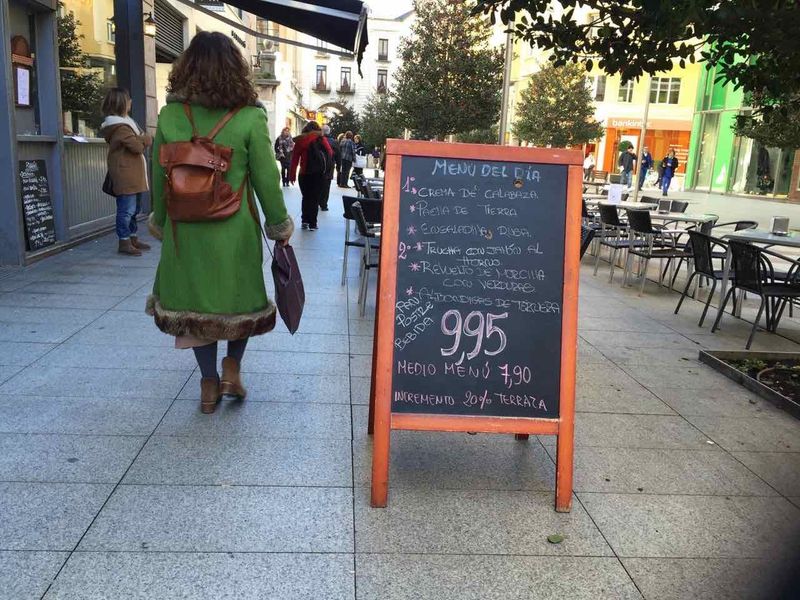
When in Spain, your wallet can stay full! But only if you know where to look!
Enter the glorious menú del día (menu of the day), a ridiculously good-value lunch deal that usually includes a starter, main course, dessert, bread, and wine or beer, all for a shockingly low price.
This tradition dates back to Franco’s rule, when laws required restaurants to provide affordable meals for workers. Today, it’s a staple of Spanish dining culture, especially during lunchtime.
Don’t make the standard mistake, like most tourists, by assuming that cheap means low quality!
14. Nightlife Starts At Midnight

Most countries consider midnight the time to head home. In Spain, it’s when the night is just getting started. Clubs don’t fill up until 2 a.m., and it’s completely normal to be dancing as the sun rises. Spaniards are night owls to the extreme.
The secret to surviving Spanish nightlife? Pacing. A long dinner, a slow bar-hopping session, and maybe even a pre-party nap are essential. If you roll up at 10 p.m. expecting a packed club, you’ll find nothing but empty dance floors and confused bouncers.
After experiencing Spain, you’ll never look at nightlife the same!
15. Spaniards Have A Unique Approach To Queueing
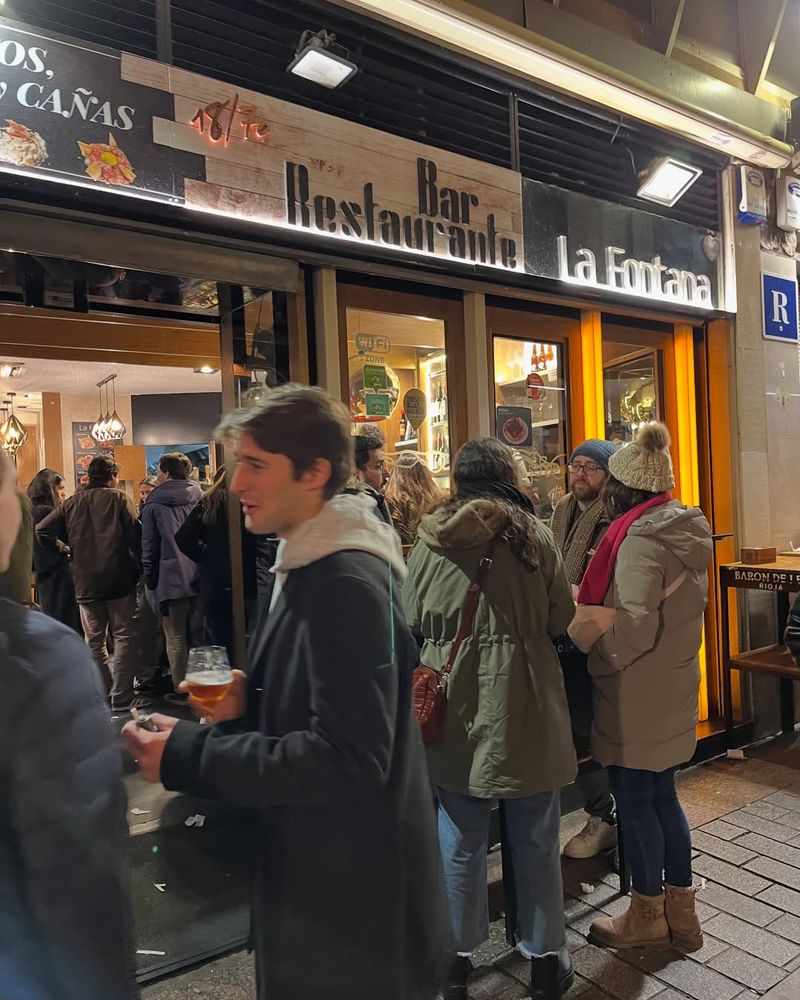
Standing in an orderly, single-file line? That’s not the Spanish way. Instead, there’s a more… fluid system. When you enter a bakery, bar, or shop, rather than physically queueing, you simply ask, ¿Quién es el último? (Who’s last?) and remember your place in the invisible line.
It’s a system built on trust, and somehow, it works.
But woe to the person who doesn’t ask upon entering. Spaniards will immediately correct you with an amused but firm reminder of how things are done.
16. The Coffee Culture Is Specific—No Fancy Lattes Here
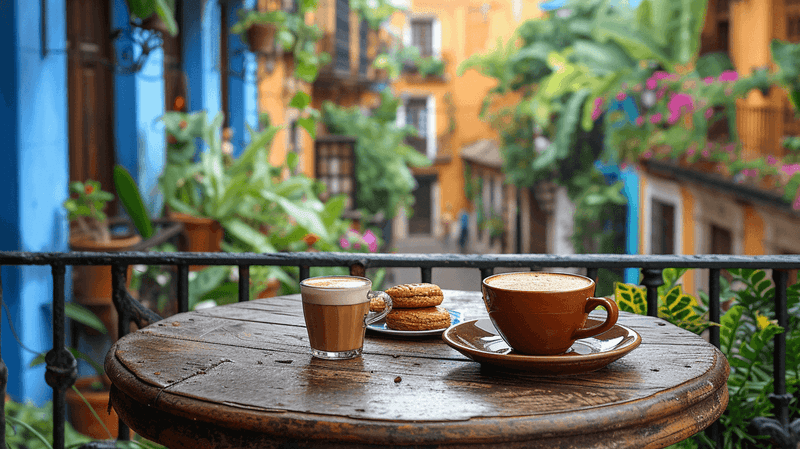
If you walk into a Spanish café and ask for a caramel macchiato with almond milk, be prepared for a blank stare.
Spain’s coffee culture is refreshingly straightforward! There’s no pumpkin spice, no whipped cream, no giant to-go cups. Here, coffee is strong, simple, and taken seriously.
Instead of an overwhelming menu of flavored lattes, you’ll find a handful of classic options. Café solo is a straight espresso shot, while café con leche (half coffee, half steamed milk) is the closest you’ll get to a latte.
The most important of all, don’t rush! Sit down, sip slowly, and enjoy the moment!
17. Olive Oil Is Practically A Religion
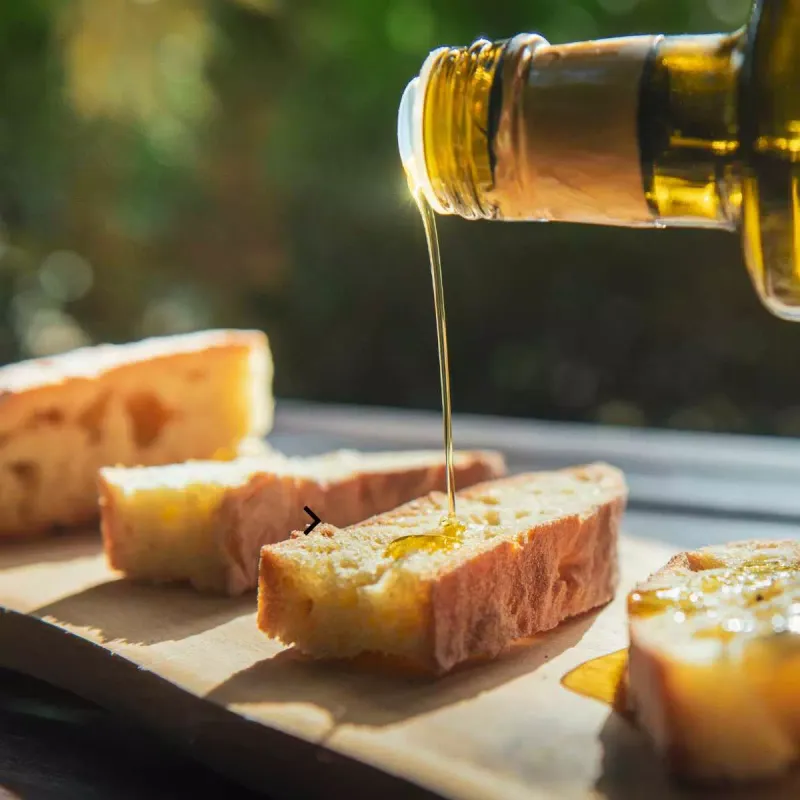
Who needs butter, when you can get the true liquid gold of Spain?
Olive oil is drizzled over toast, splashed onto salads, and even used for cooking desserts. Walk into any supermarket, and you’ll find entire aisles dedicated to different varieties, from delicate and fruity to bold and peppery. And yes, Spaniards can taste the difference.
At first, the sheer amount of olive oil might seem excessive. But dip a piece of fresh bread into a golden pool of high-quality Spanish aceite de oliva, and you’ll understand why it’s more than just an ingredient.
18. Wine Is Cheaper Than Water
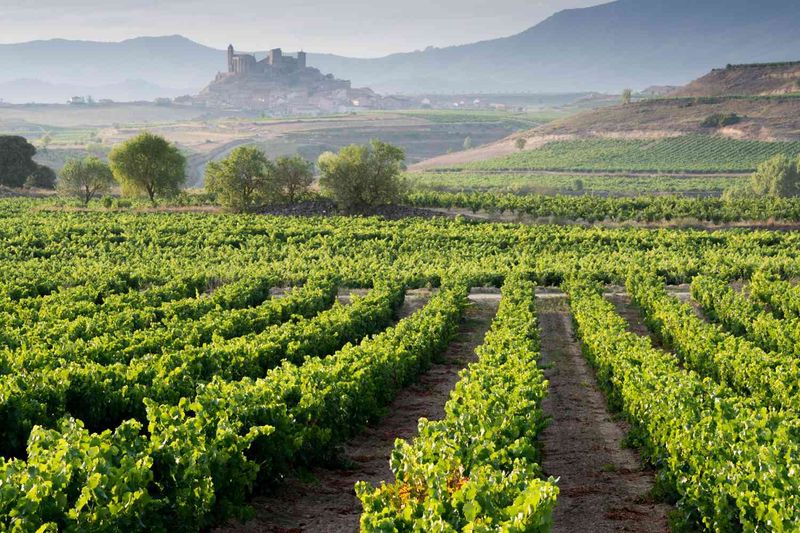
If you’re used to expensive wine lists, Spain will feel like a dream. Here, ordering a glass of vino tinto can cost less than bottled water, and house wine at a restaurant is not only affordable but surprisingly delicious. It’s not uncommon to see locals sipping on a copa de vino even at lunchtime, treating it as a normal part of the meal.
Regions like La Rioja, Ribera del Duero, and Priorat, to name a few, produce world-class reds and whites. The selections are limitless!
While the idea of wine being cheaper than water might seem surreal, it’s a testament to Spain’s relaxed attitude toward life’s pleasures.
19. Spain’s Love Affair With Seafood
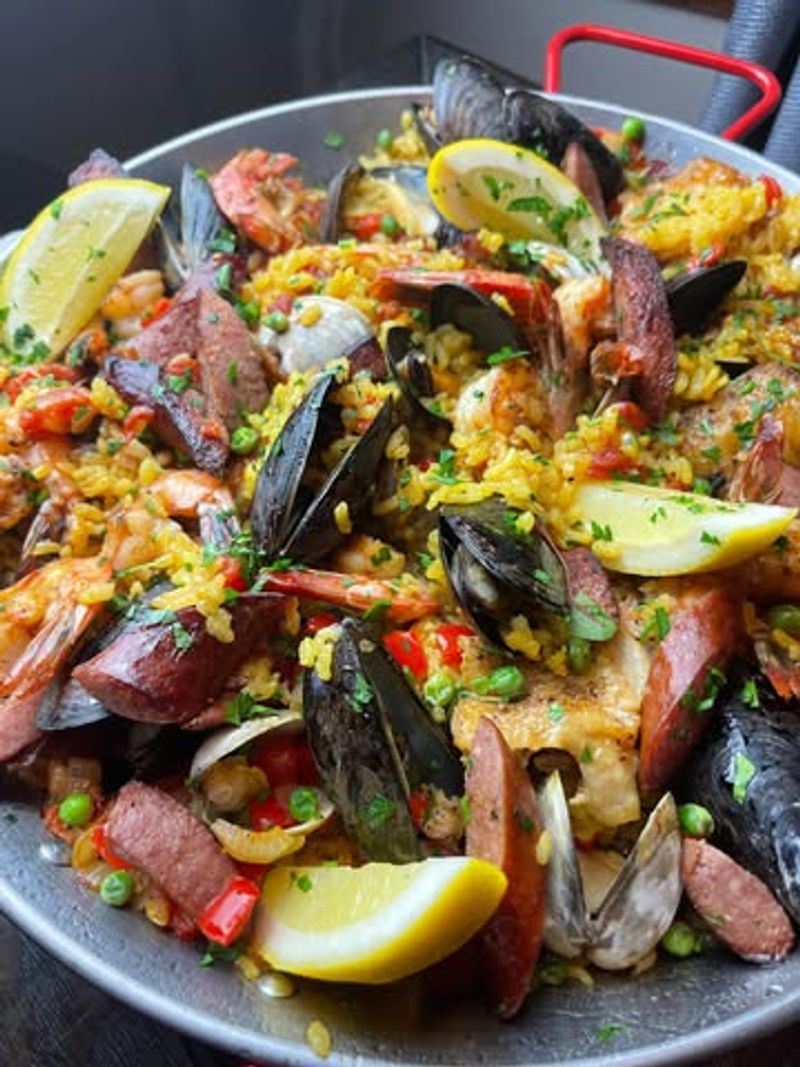
If you’re a seafood lover, in Spain you’ll find it on every menu. The hardest task is to decide which one to pick!
One of Spain’s most beloved seafood traditions is the mariscada. It’s a feast of shellfish that turns a simple dinner into a grand event. And then there’s pulpo a la gallega, a Galician specialty where octopus is boiled, sliced, and sprinkled with paprika and olive oil. It might look simple, but one bite will convert any seafood skeptic.
Seafood is all they can talk about, so embrace this national obsession!
20. Street Parties Are A Normal Occurrence
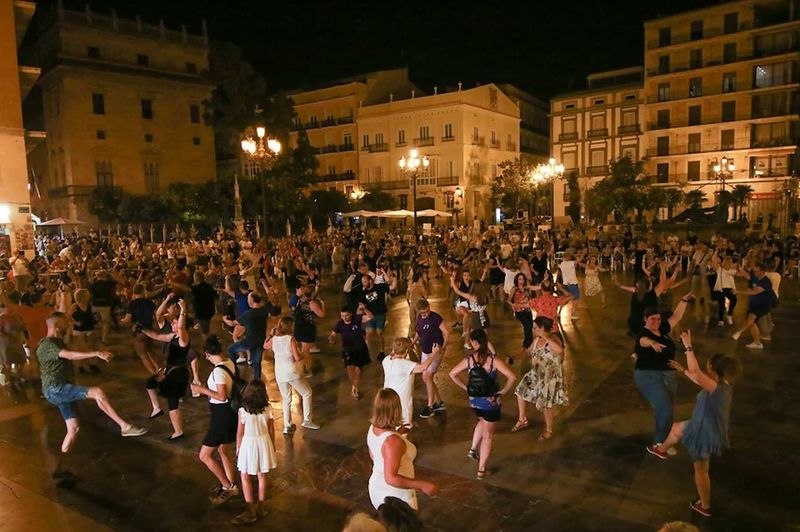
In Spain, the streets often transform into impromptu dance floors, filled with laughter and music. Street parties, or “fiestas,” are a frequent occurrence, bringing communities together in joyous celebration.
For first-time visitors, stumbling upon a street party can be a delightful surprise, offering a glimpse into Spain’s social fabric. These events are more than just entertainment; they reflect the Spanish emphasis on community and joy.
Participation is open to all, with locals welcoming newcomers to join the revelry. Embracing the spontaneity and spirit of a street party is an unforgettable experience, highlighting the warmth and vibrancy that define Spanish culture.
21. The Bread Obsession—It Comes With Everything

If you think you know carb-loading, Spain will take it to a new level. Here, bread is an essential part of every meal. Order a plate of jamón ibérico? It comes with bread. A seafood stew? Bread. A simple salad? You guessed it—more bread.
And unlike in some cultures where bread is just a pre-meal snack, in Spain, it’s eaten from start to finish.
At first, you might wonder why every dish comes with carbs on the side. But once you realize how perfectly that crunchy crust complements Spain’s rich, flavorful cuisine, you’ll embrace the bread obsession like a true local.
22. Tipping Is Not A Big Deal
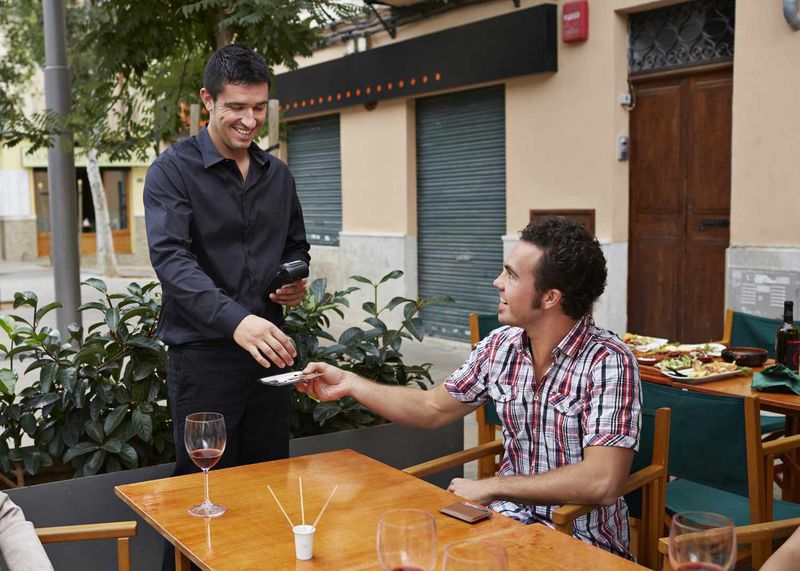
In Spain, tipping is a more relaxed affair compared to many other countries. While it’s appreciated, it’s not expected to the same extent, and the amounts are typically modest.
This reflects Spain’s approach to service, where hospitality is genuine and not driven by gratuities. For visitors, this can be a refreshing change, alleviating the pressure to calculate the perfect tip.
It’s customary to leave a small amount, usually rounding up the bill or leaving some loose change, as a token of appreciation. This relaxed attitude extends to various services, from dining to taxis, where the focus remains on the quality of interaction rather than financial reward.
23. Bureaucracy Moves At Its Own Speed

If patience isn’t your strong suit, Spain’s love affair with bureaucracy might drive you crazy. Whether you’re dealing with visa paperwork, residency applications, or even something as simple as opening a bank account, expect things to take a lot longer than you’d think.
Offices have irregular hours, appointments must be booked weeks in advance, and even the simplest tasks often require mountains of paperwork.
Frustrating? Absolutely. But it’s all part of Spain’s laid-back approach to life. If you can learn to embrace the slower pace, of course!
